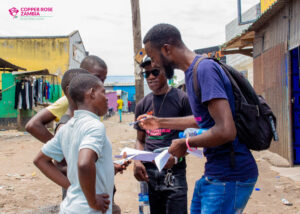
The World Health Organization defines SRH self-care as strategies that allow individuals to have control of their own SRH needs. The SRH self-care strategies allow individuals to make informed choices and decisions regarding their SRH needs without discrimination, coercion, and violence. It is all about one’s physical, mental, and social well-being concerning sexuality, relationships, and reproductive choices. This allows individuals to achieve bodily autonomy and integrity.
Understanding the relationship between SRH and HIV is important for promoting comprehensive health and well-being. On one hand, SRH has a broad range of topics including sexual education, contraception, pregnancy, and reproductive health, all of which play an important role in maintaining overall health and well-being. HIV, on the other hand, is a virus that significantly affects the immune system and can have profound implications for an individual’s physical and mental health.
The linkages between SRH and HIV make them inseparable in programming. These linkages play a crucial role in improving the health of all populations as they ensure that we reach out to target populations through singular programs e.g. leveraging on outreach activities to disseminate information on both SRH and HIV. Integrating SRH and HIV prevention in programming is important for improving the health and well-being of all people. Thus, effective reproductive health interventions can significantly reduce the risk of HIV transmission through the promotion of safer sexual practices, access to testing and treatment, and supporting informed decision-making. Understanding and managing HIV is crucial for maintaining SRH, as HIV has the potential to complicate issues like pregnancy and sexual relationships.
Aside from programming one can boost their self-awareness using the following guidelines:
- First up, self-help. It is all about spotting potential problems early and stopping them in their tracks! Like creating a plan to monitor your mental health.
- Next, self-education. Get the right information and knowledge on various health issues. Read journal articles or watch cool videos about SRH and HIV online, visit your nearest clinic and affiliate yourself with the youth-friendly space to access information, education, and communication materials. Knowledge is power!
- Now, let us talk about self-regulation. You can actively enhance your health and improve your medical conditions. This can be achieved by setting clear boundaries, practicing mindfulness, and making intentional choices that prioritize one’s physical, mental, and health well-being.
- Lastly, self-determination. It is about making choices and managing your own life. This includes achieving bodily autonomy and integrity. Like choosing to abstain from sex if it feels right for you. It is your life, your choice. Remember, self-care is all about being informed and making the best choices to remain healthy with or without the presence/support of a health worker.
In a nutshell, understanding the link between SRH and HIV is crucial for comprehensively improving the health outcomes of all populations especially adolescents and young people. SRH and HIV are two sides of the same coin; you cannot talk about HIV prevention without addressing the needs of SRH. Therefore, to meaningfully improve the health outcomes of any population, it is essential to integrate SRH into HIV prevention. The integration will potentially address challenges where some provinces experience higher HIV transmission rates and fewer unwanted pregnancies, while other regions face the opposite. The challenge with this is that it does not comprehensively address the SRH needs of adolescents in an integrated manner. Thus, integration of SRH and HIV will potentially address this challenge and significantly enhance the overall health outcomes of people.
Remember Self Care is not selfishness!!
By Copper Rose Zambia with support from Aidsfonds.

